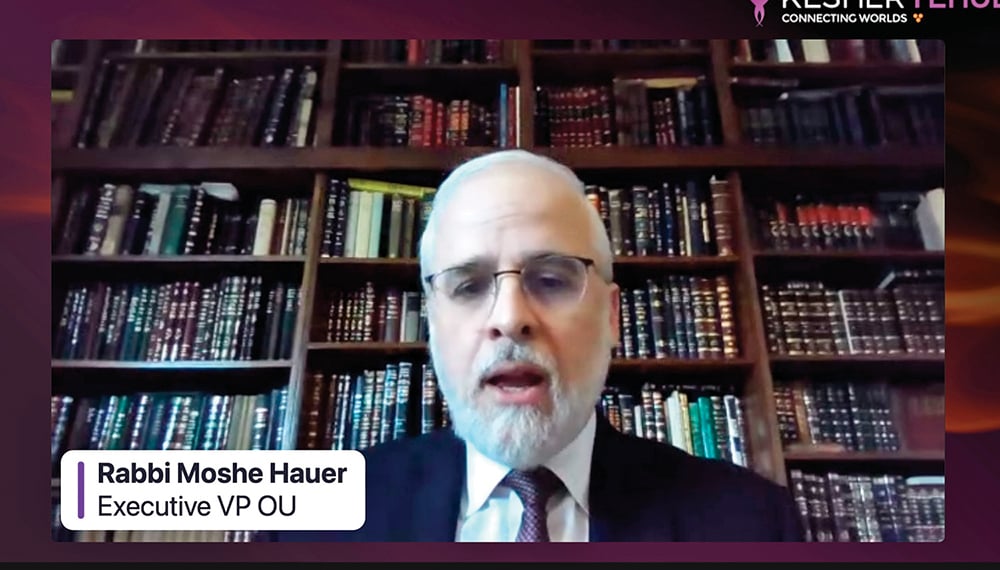
As we prepare for our sedarim this year we are mindful, much more than in years past, that not all Jews are able to celebrate the “Festival of Freedom” as free men and women.
Our communities, and our prayers, are focused on the more than 100 hostages in Gaza. We are painfully aware of the dichotomy of our holiday celebration as the families of the hostages struggle with the absence of their loved ones and the uncertainty of when or if they will return.
To bring comfort to hostage families and find inspiration from their situation for world Jewry, the Kesher Yehudi organization in Israel held a “Solidarity, Understanding and Achdus” pre-Pesach webinar with members of five families of hostages on Sunday, April 14. The webinar also featured greetings from Rabbi Israel Meir Lau, former chief rabbi of Israel; Rabbi Moshe Hauer, executive vice president of the Orthodox Union; Tzili Schneider, CEO of Kesher Yehudi; and Esther Wein, a renowned speaker. More than 350 people watched the webinar, from the U.S., Israel, Germany, Uganda, Ireland, South Africa and other countries.
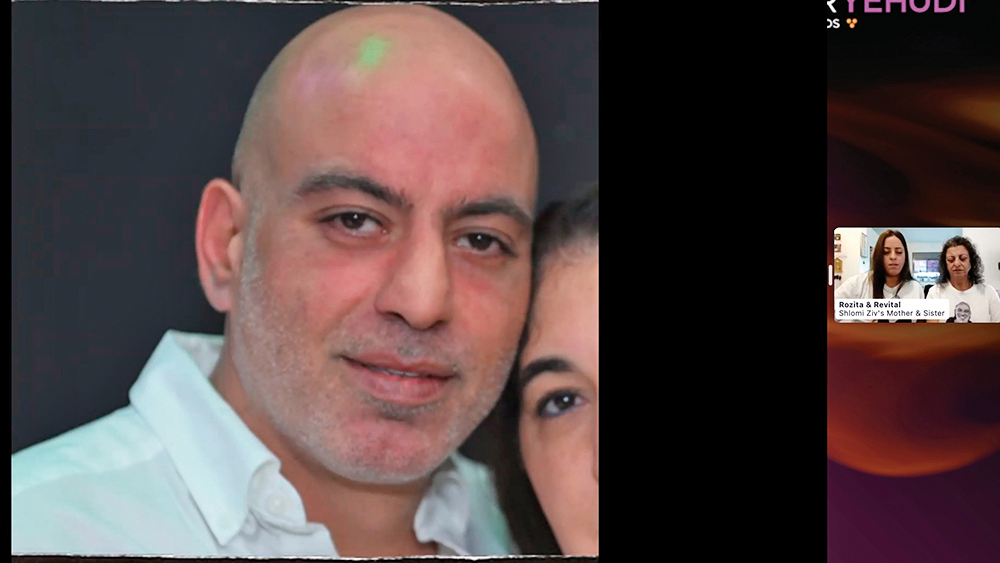
Kesher Yehudi is an organization uniquely suited to organize this worthwhile webinar. Founded 12 years ago by Schneider, it is dedicated to healing the social rifts dividing Israeli society by creating opportunities for secular and religious Jewish Israelis to meet, strengthen their Jewish identities, and form lasting friendships. Kesher Yehudi has created 14,000 private learning partnerships and provides programming in 32 secular mechinot (year-long preparatory academies before army service), reaching 1,600 men and women each year. The organization has formed strong bonds with families of those taken hostage on October 7, holding community events, two shabbatons, holiday events, weekly calls and more.
The webinar was moderated by Kesher Yehudi’s American Board Chair David Israel. Rabbi Lau noted that as we prepare for Pesach this year, we know it is not the same because “some of our brothers and sisters have been kidnapped by our enemies, and we don’t know what their fate is.” He asked that all viewers pray for the hostages and think of those who have promised to support them.
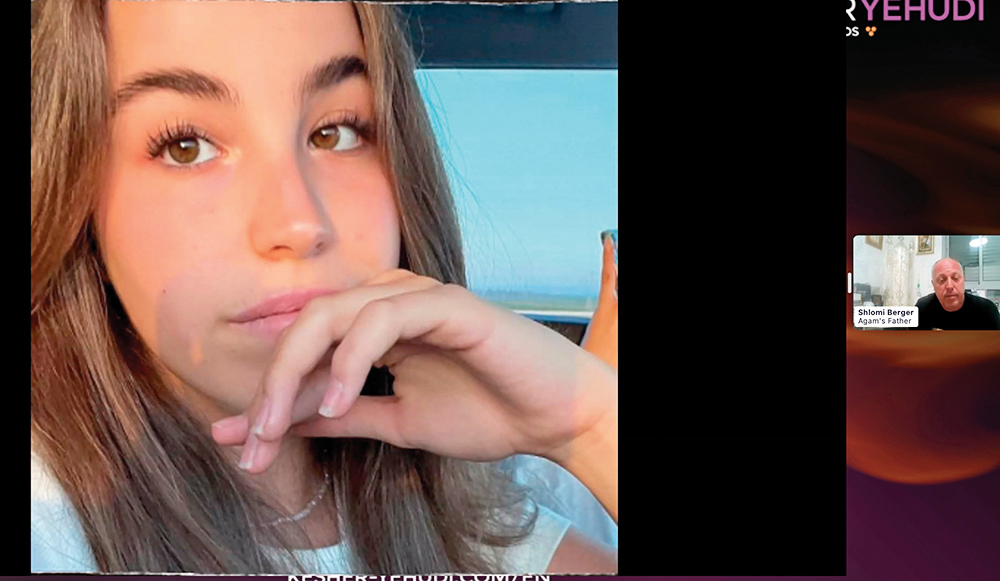
Rabbi Hauer praised the hostage families for “teaching, instructing and inspiring” the rest of us “by not giving up, by not letting go.” He noted that “everywhere I go in my work, there is no gathering without a recitation of Tehillim for the hostages, for your family members.”
Rabbi Hauer shared an insight from the Ben Ish Chai, who pointed out that we have two instances of dipping during the Seder. The first dipping can be seen as a remembrance of the brothers of Yosef who dipped his multicolored coat in blood in an effort to deceive their father that Yosef had been killed. “This is what got us in trouble,” said Rabbi Hauer, and led to our exile in Egypt, when family tried to forget each other. The second dipping at the Seder represents the dipping of the hyssop in the blood of the Passover sacrifice and painting it on the doorways of Jewish homes in Egypt, with families gathered together inside. “That is what got us out of trouble—families united.”
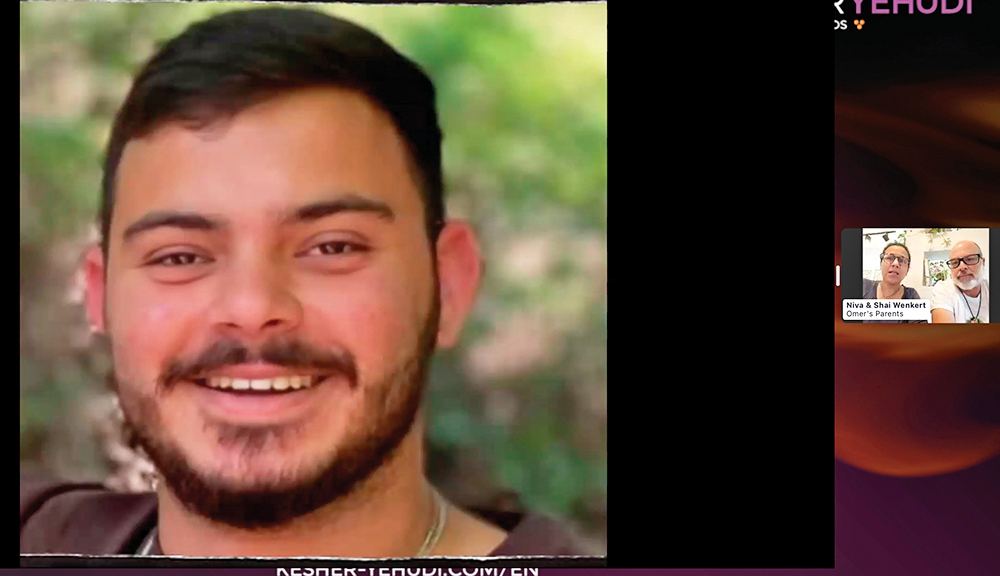
Schneider stated that “October 7 wasn’t a private story, it was an Am Yisrael story; Hashem shocked us because he wanted something from us.” She asserted that “Hashem chose you, the families of the hostages, to be our leaders of Am Yisrael, to tell us how to have achdus for an important cause.”
Wein spoke to the hostage families and told them: “We think about you, all the time. And we daven for you, all the time. Your story is our story, and you are in a unique position … you see so clearly what we must do.” She urged them to “speak with us, to tell us how we can carry this burden with you.”
She then invited each of the hostage families to share their stories.
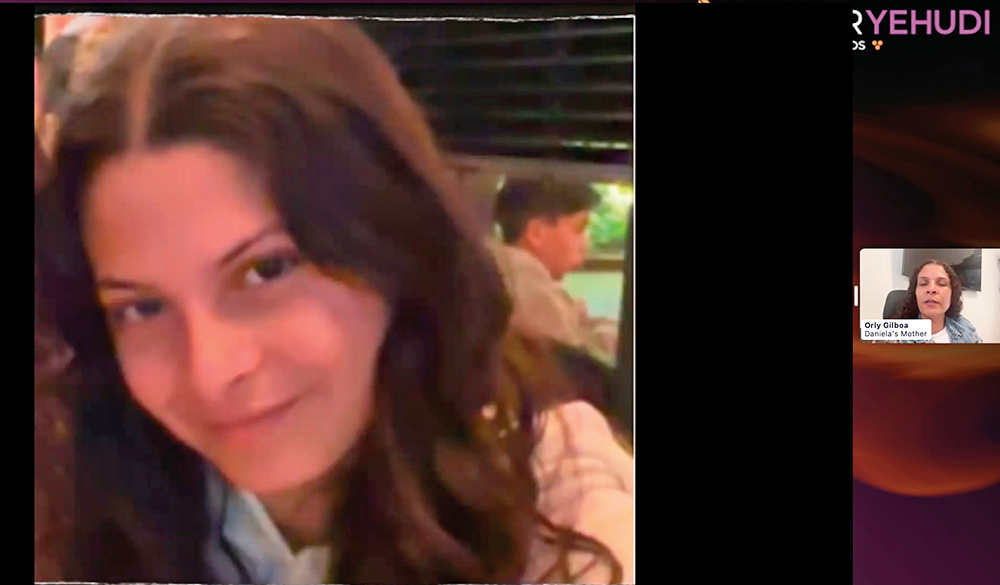
Niva and Shai Wenkert, parents of Omer Wenkert, shared that Omer went to the Nova music festival to celebrate and on the morning of October 7, he texted his mother and told her he was “scared to death.” They later saw a picture of him in the media, which showed that he was captured by Hamas. They related that Omer is 22 years old, a restaurant manager who has many friends. They said they tell people, “Omer’s coming back,” and asked the webinar participants to “please imagine him coming home.”
Orly Gilboa, Daniella Gilboa’s mother, shared that her daughter’s given name is Danielle and the family added a Hay at the end as a prayer for her safe return. Daniella was an observer at the Nahal Oz army base, and saw her friends killed on October 7. Her last text message to her mother that day said, “Mommy, please pray for me.” Orly feared that Daniella had died but the next day she saw a news video of Daniella and three other women on the back of a jeep, headed to Gaza. “I was happy to see that she was alive; from that moment, my husband and I are fighting to see her returned.” Orly said that her daughter is a talented singer and songwriter. “What gives me strength? It is all the people, in Israel and abroad, who ask: ‘What can we do for you?’”
Shlomi Berger, Agam Berger’s father, said that his daughter was also an observer on the Nahal Oz army base and she’d arrived there 24 hours before the October 7 attacks. Agam hopes to work with children with special needs. Shlomi also received distressed texts from his daughter on the morning of October 7 and only knew she was alive when he saw the same video, of the four women on the jeep. Friends have brought him a sefer Torah, which he keeps in Agam’s room. “We pray with it every Shabbat, and that gives us strength.” He added: ”We get lots of calls, especially from religious people, who ask: ‘What do you need?’ And that is making my heart warm to hear it.”
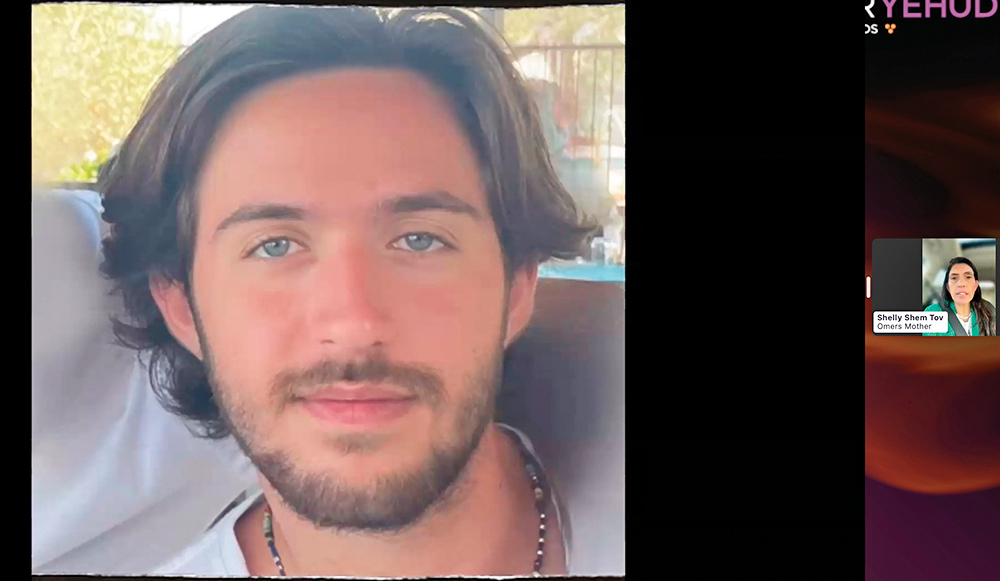
Rozita Ziv, the mother, and Revital Ziv, the sister, of Shlomi Ziv, spoke of how Shlomi went to work at the Nova music festival and saw his friends killed. Revital said, “We can’t go on with life without him; it is unbearable.” They don’t know much about his status. “We have a great army in Israel,” said Revital, “and we also have you, who are also soldiers, who are doing chesed and have emunah. We know you are standing with us.”
Shelly Shem Tov, Omer Shem Tov’s mother, shared that he is her youngest son and that he went to the Nova music festival. He was kidnapped with two friends and told her, early on October 7, that he was afraid. She saw a video on the news of a pickup truck with Omer on it. “It was shocking; I didn’t know what to do. … We are doing everything, in Israel and abroad, to share his story and see him released. … We call him our sunshine; he is a warm guy; everyone loves him.” The anguished mother said that she is keeping the light on in his room until he comes back.
As the program was concluding, Wein asked the hostage families: “What can we do for you? What message do you have for our Seders?” Shai Wenkert urged people to keep an empty chair at their Seder table for the hostages and ask Eliyahu, when they open the door for him, to help get the hostages released. Shlomi Berger seconded that suggestion. Orly Gilboa asked people to put a photo of one of the hostages at their Seder table, and Shelly Shem Tov asked everyone to take a moment at the Seder to think of the hostages.
For more information on Kesher Yehudi, please visit their website at www.kesher-yehudi.com
Harry Glazer, the Middlesex County editor of The Jewish Link, can be reached at harryglazer615@gmail.com. He thanks his editors for allowing him to cover this very meaningful event and he thanks Rachel Moore for sharing the opportunity with him.









